This is what Palestinians in Gaza City are facing as Israeli forces relentlessly bomb the area as part of the ‘second phase’ of their plan to capture it.
Palestinians under relentless attack as Israel steps up Gaza City assault
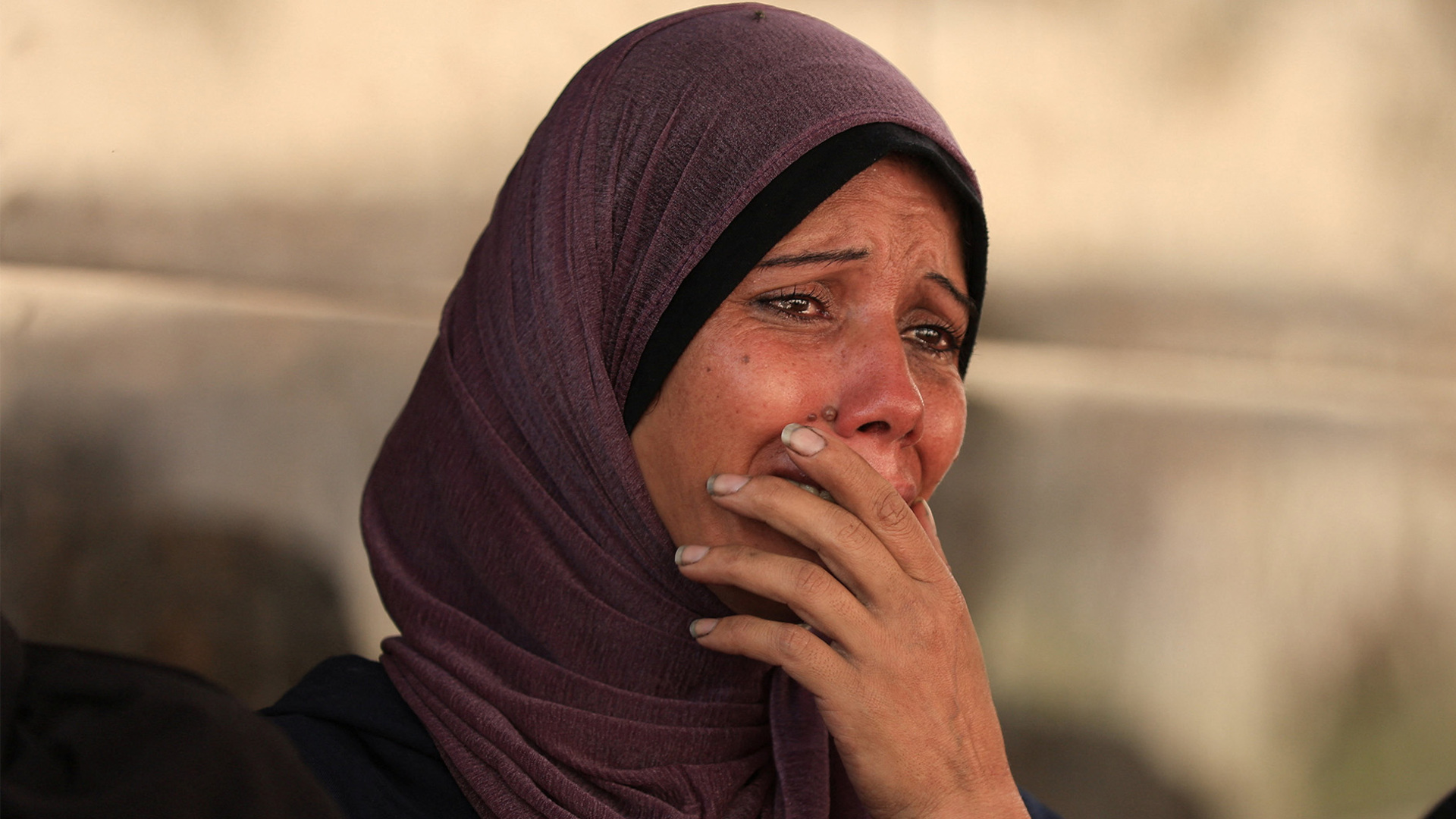

This is what Palestinians in Gaza City are facing as Israeli forces relentlessly bomb the area as part of the ‘second phase’ of their plan to capture it.
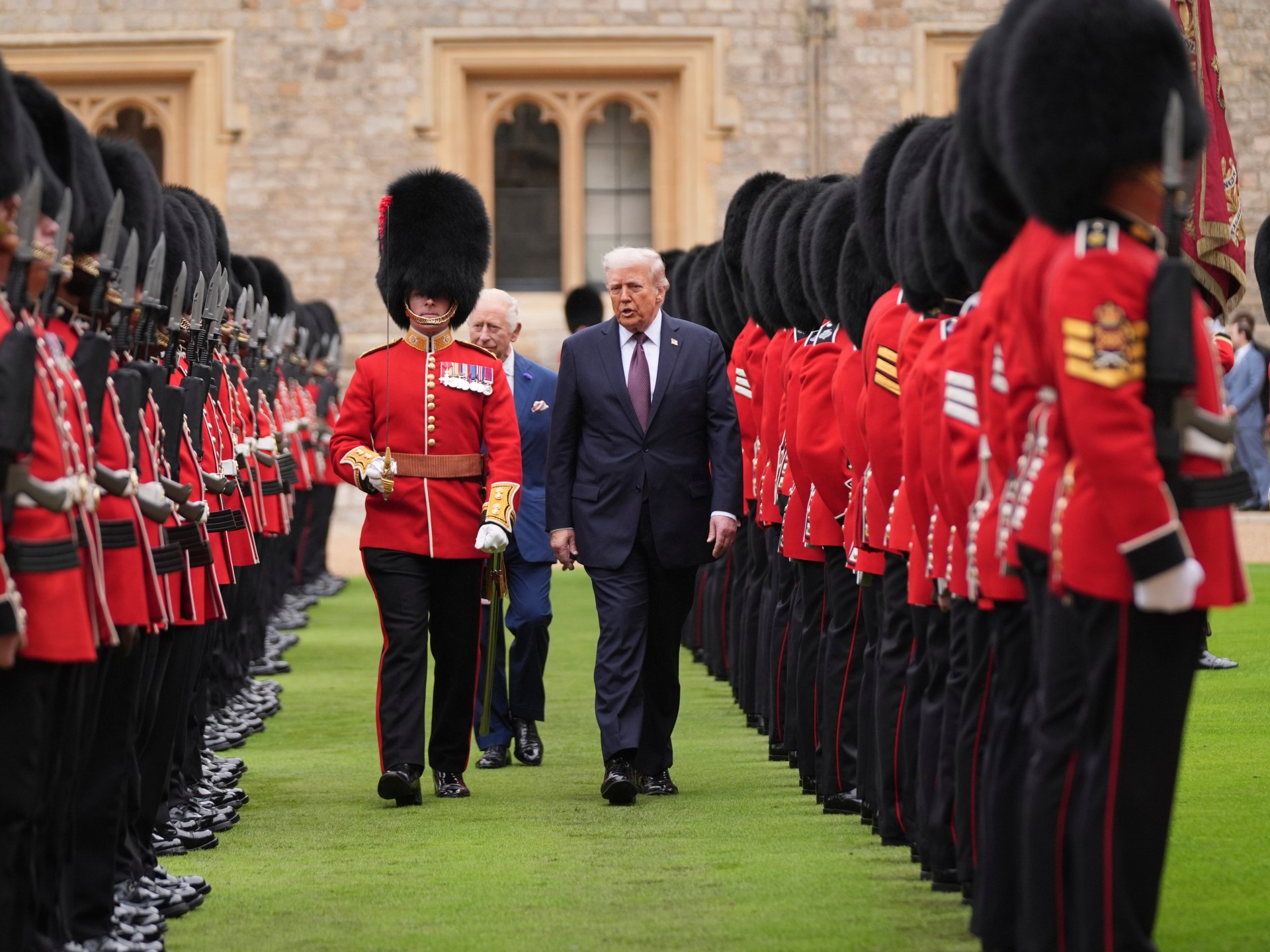
United States President Donald Trump arrived at Windsor Castle for a two-day state visit to the United Kingdom, welcomed with a magnificent royal ceremony, military honour guards, and mounted troops in ornate red and gold uniforms.
Prince William, the next in line to the British throne, and his wife, Princess Catherine, met the president and First Lady Melania Trump as they landed in the Marine One helicopter in the castle estate’s private Walled Garden, then escorted them to their meeting with King Charles III and Queen Camilla.
The group travelled to the castle in horse-drawn carriages, passing formations of military personnel while bands performed both national anthems. President Trump and King Charles engaged in conversation while riding in the Irish State Coach to the castle quadrangle, where they reviewed an honour guard of soldiers in their distinctive red tunics and bearskin hats.
The day’s elaborate pageantry marks Trump’s historic second state visit to the UK. The impressive display, crafted to appeal to the president’s appreciation for grandeur, features approximately 120 horses and 1,300 troops, including what officials describe as the largest guard of honour in living memory.
Trump landed in London late on Tuesday and expressed his fondness for the United Kingdom as “a very special place”. When questioned about his message for Charles, he noted their longstanding friendship and the high regard in which the king is held.
Unlike most state visits traditionally held at London’s Buckingham Palace, this one takes place in Windsor, an historic town of just more than 30,000 residents, approximately 25 miles (40km) west of central London.
Windsor is home to Windsor Castle, one of the British royal family’s residences.
This location enables enhanced security and better protest management during a period of heightened international tensions, especially following the fatal shooting of Trump ally Charlie Kirk in the US state of Utah. British authorities have implemented comprehensive security measures to ensure the president’s safety.

Several European countries have announced that they will not participate in the next Eurovision Song Contest if Israel, which has taken part in the annual competition for half a century, is allowed to continue.
On Tuesday, Spain joined the Netherlands, Ireland and Slovenia in denouncing Israel’s war on Gaza, which has killed nearly 65,000 people since October 2023, with many thousands more lost under the rubble and presumed dead, and announced that they will not take part if Israel continues to do so.
Eurovision is an international song competition which takes place every year, primarily in European countries, and is televised. It has been running since 1956 and is one of the world’s longest-running and most-watched non-sporting TV events.
Each country performs an original song and the winner is determined by voting. The contest is organised by the European Broadcasting Union (EBU), a collective of public broadcasters in more than 35 countries.
Any country which has a broadcaster operating within Europe as part of the EBU can participate in Eurovision. Australia joined in 2015, Armenia in 2006 and Azerbaijan in 2011.
The winner of each contest hosts the following year competition.
The next contest will take place in May 2026 in Vienna.
Israel first took part in Eurovision in 1973 because its national broadcaster is a member of the EBU. Back then, Israel’s national broadcaster was the Israel Broadcasting Authority; now it is the Israeli Public Broadcasting Corporation, or Kan, and is still part of the EBU.
Arabic-speaking countries have only taken part very rarely: Morocco participated only once in 1980 – which was the only time an Arabic song featured in the contest. Tunisia and Lebanon withdrew in 1977 and 2005 after refusing to air Israeli content.
Israel’s participation in Eurovision has frequently met protests, but objections have intensified since the start of its war on Gaza in October 2023, following the Hamas-led attack on southern Israel.
For the 2024 competition, which was held in Malmo, Sweden, the EBU rejected Israel’s entry for being too political. The entry was a song called October Rain, referencing the victims of the October 7 Hamas attack, during which 1,139 people were killed.
While initially reluctant, Kan changed Israel’s entry to a romantic ballad. Israel was ranked fifth in the competition.
Israel also participated in the 2025 competition, which was held in Basel, Switzerland, finishing in second place.
So far, five European countries have said they may not participate in Eurovision if Israel does.
Iceland’s broadcaster RUV said that it is possible that Iceland would withdraw from Eurovision if Israel participates in the competition, according to a news report published by the RUV website on September 9.
On September 11, Irish national broadcaster RTE issued a statement announcing it would not participate in Eurovision in 2026 if Israel participates.
“RTE feels that Ireland’s participation would be unconscionable given the ongoing and appalling loss of lives in Gaza,” the statement said.
On September 12, Dutch broadcaster AVROTROS, one of the public broadcasters that funds and organises Eurovision, announced that it will not participate in the competition in Vienna if Israel takes part.
It cited the “ongoing and severe human suffering in Gaza” as the reason.
The statement added, “The broadcaster also expresses deep concern about the serious erosion of press freedom: the deliberate exclusion of independent international reporting and the many casualties among journalists.”
Also on September 12, Slovenian broadcaster RTV Slovenia announced that it will also not participate in Eurovision if Israel takes part in the competition.
On Tuesday this week, Spanish state broadcaster RTVE’s board voted to withdraw from Eurovision if Israel participates.
Spain is the first country among Eurovision’s “big five” to make such an announcement. The big five, which also includes the United Kingdom, Germany, Italy and France, are countries that automatically qualify for Eurovision’s final round regardless of how they perform in previous rounds.
This announcement came a day after Spain’s Culture Minister Ernest Urtasun told the local television programme, La Hora de La 1, that the country would consider “measures” if Israel was “not expelled”. Urtasun added that Spain had already formally requested Israel’s exclusion from Eurovision.
Eurovision typically stresses political neutrality.
Martin Green, director of Eurovision, released a statement saying the organisation is “still consulting” with its partners on how to deal with “participation and geopolitical tensions around the Eurovision Song Contest”.
Green said, “We understand the concerns and deeply held views around the ongoing conflict in the Middle East. It is up to each member to decide if they want to take part in the contest, and we would respect any decision broadcasters make.”
Experts say that while it is difficult to determine whether the boycott will divide Eurovision, it could keep awareness about the war in Gaza strong as Eurovision is televised throughout Europe and beyond.
Christina Oberg, a professor at the Department of Marketing and Tourism Studies at the Linnaeus University in Sweden, told Al Jazeera that the original ambition of Eurovision was to foster collaboration and peace in Europe after World War II.
In an article she published in June 2025 about the politicisation of Eurovision, Oberg said that Eurovision had managed for decades to uphold its “inclusive European vision” despite ongoing regional tensions until the first “real shift” was seen when the EBU banned Russia following Russia’s invasion of Ukraine in 2022.
It stated at the time, “The Eurovision Song Contest is a non-political cultural event. The EBU is however concerned about current events in Ukraine and will continue to closely monitor the situation.”
“This means that ESC – or more rightfully EBU made itself a political player,” Oberg said. “Then, based on the Gaza war, questions arise why IBU does not act the same. I don’t want to say what is right or wrong here, but there are issues in the inconsistency.”
She added that there will probably will be peer pressure on other countries to issue statements similar to those issued by Spain and other European countries recently.
“I don’t see this as a divide, more as country-level decisions, rather than as some countries being for or against.”
She added that while the countries’ announcements to withdraw from the competition are mostly symbolic, they do bring attention to the issue.
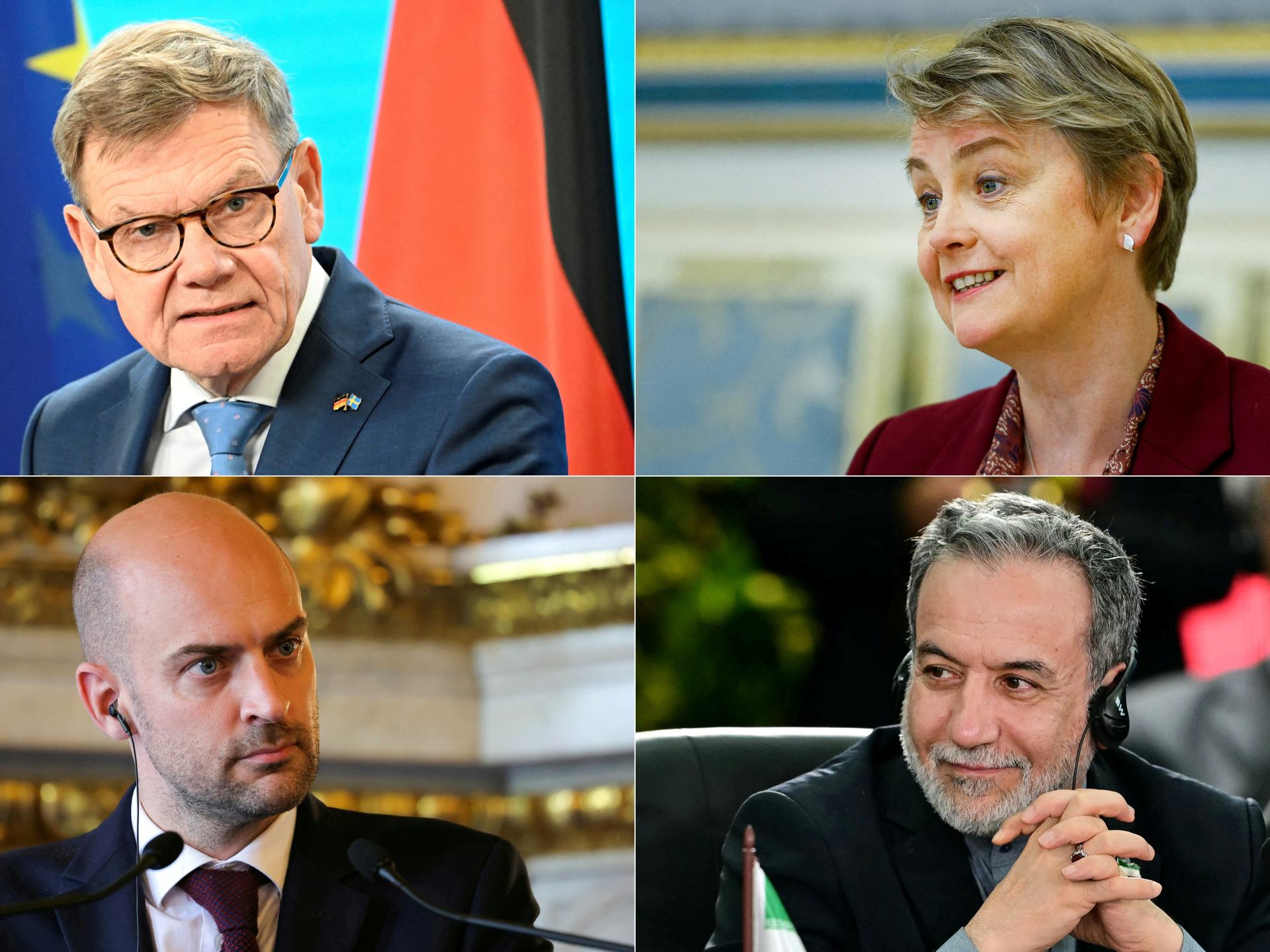
Germany says the “ball is still in Iran’s court” after the French, British and German foreign ministers held talks by phone with their Iranian counterpart, Abbas Araghchi, regarding Tehran’s nuclear programme.
Wednesday’s phone call came after the European powers last month triggered a 30-day deadline for “snapback” sanctions to come into force in the absence of a negotiated deal on the Iranian nuclear programme.
list of 3 itemsend of list
A German Federal Foreign Office spokesman told the AFP news agency on Wednesday that the offer from the so-called E3 powers “to discuss a temporary extension of the snapback if Iran fulfils certain conditions remains on the table” but added: “At this point, the steps taken by Iran have not been sufficient.”
Before the call, Tehran called for a “positive approach and goodwill” from the E3.
The E3 has been warning Tehran for weeks that United Nations sanctions could be reimposed by October when a 2015 nuclear agreement between Tehran and major powers expires.
A spokesman for Iran’s Ministry of Foreign Affairs has warned that renewing the sanctions would have consequences.
The E3 has accused Tehran of violating provisions of the 2015 nuclear pact, formally known as the Joint Comprehensive Plan of Action (JCPOA). The agreement, which all three countries signed, saw Iran agree to curb its nuclear programme in exchange for a lifting of international sanctions on its economy.
A component of the nuclear deal, the “snapback” mechanism, allows sanctions to be reimposed quickly if Iran is found to be in violation of the accord.
The call, which also included European Union foreign policy chief Kaja Kallas, followed an agreement reached by Iran and the International Atomic Energy Agency (IAEA) last week on resuming cooperation between Tehran and the UN nuclear watchdog, including in principle the inspection of nuclear sites. Iran’s Supreme National Security Council has backed renewed nuclear inspections.
Earlier in the week, Iran was pushing for a resolution prohibiting attacks on nuclear installations at the IAEA’s General Conference, which started on Monday in Vienna and ends on Friday.
According to Iran’s deputy nuclear chief, Behrouz Kamalvandi, who is in Vienna, the United States is putting pressure on member states to block the resolution and has “even threatened the agency that they will cut off assistance to the organisation”.
During a 12-day conflict in June, Israel and the US struck Iranian nuclear facilities, claiming Iran was getting too close to being able to produce a nuclear weapon, and IAEA inspections were interrupted over security concerns and complaints by Tehran.
Resumed cooperation between Iran and the IAEA is one of the three conditions set by European powers to hold off on completing the UN snapback mechanism, which they invoked in August.
“It is a natural expectation that Iran’s positive approach and goodwill should be reciprocated by the European side. … If some European parties start nagging this is not enough, that would mean they do not accept the IAEA,” Iranian Foreign Ministry spokesperson Esmaeil Baghaei said on Wednesday.
“We hope that with contacts like today’s and future ones, all parties will come to the conclusion that escalating tensions and perpetuating the current situation is not in anyone’s interest.”
Since US President Donald Trump unilaterally withdrew from the Iranian nuclear deal in 2018 and reimposed sanctions, the Board of Governors of the IAEA has adopted four Western-backed censure resolutions against Iran, which maintains its nuclear programme is for peaceful civilian purposes.
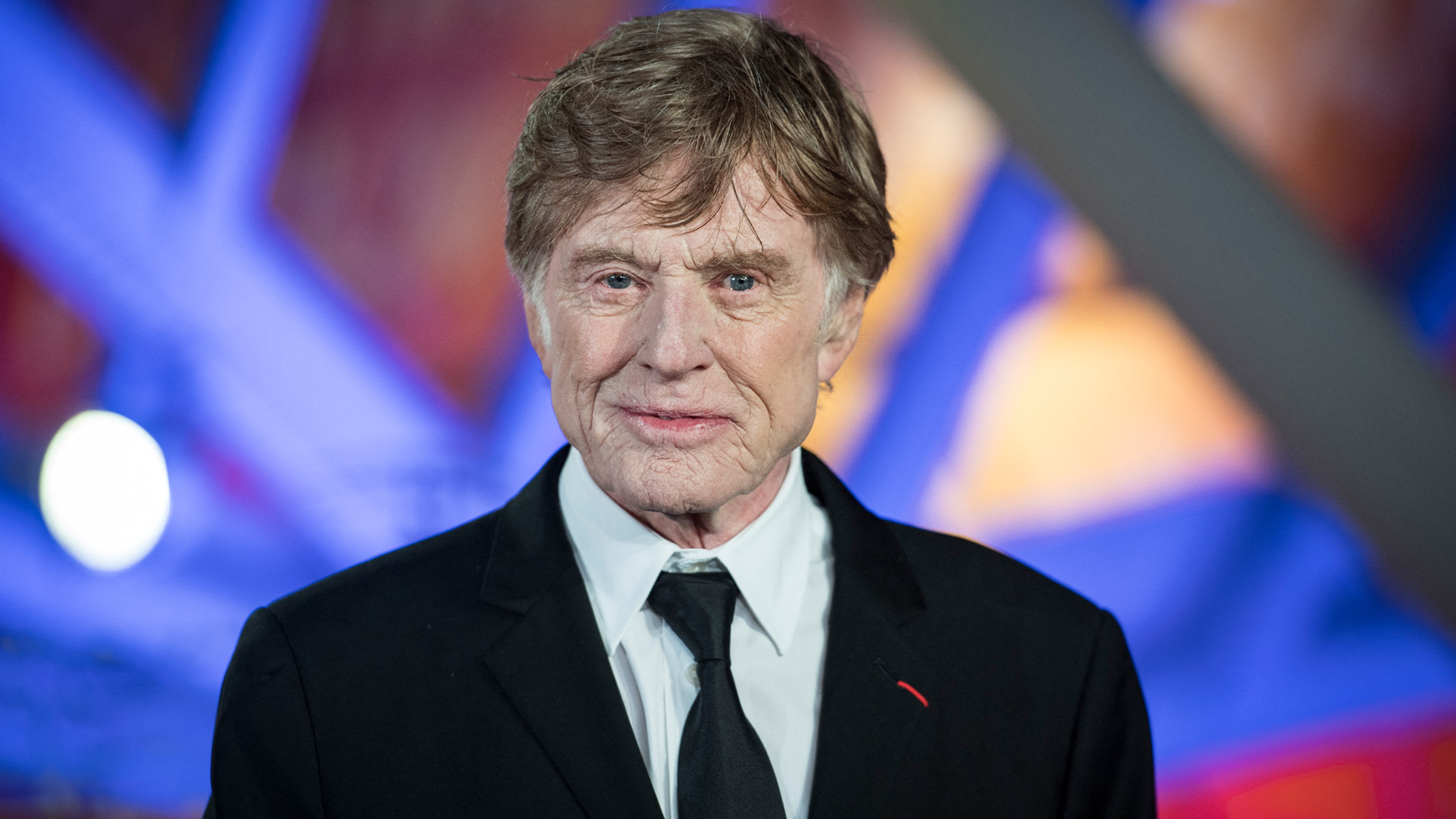
Robert Redford, the Oscar-winning actor, director and activist, has died aged 89. Celebrated for his Hollywood career, he also left a lasting legacy as a champion of independent cinema through Sundance and as a committed voice for environmental causes.
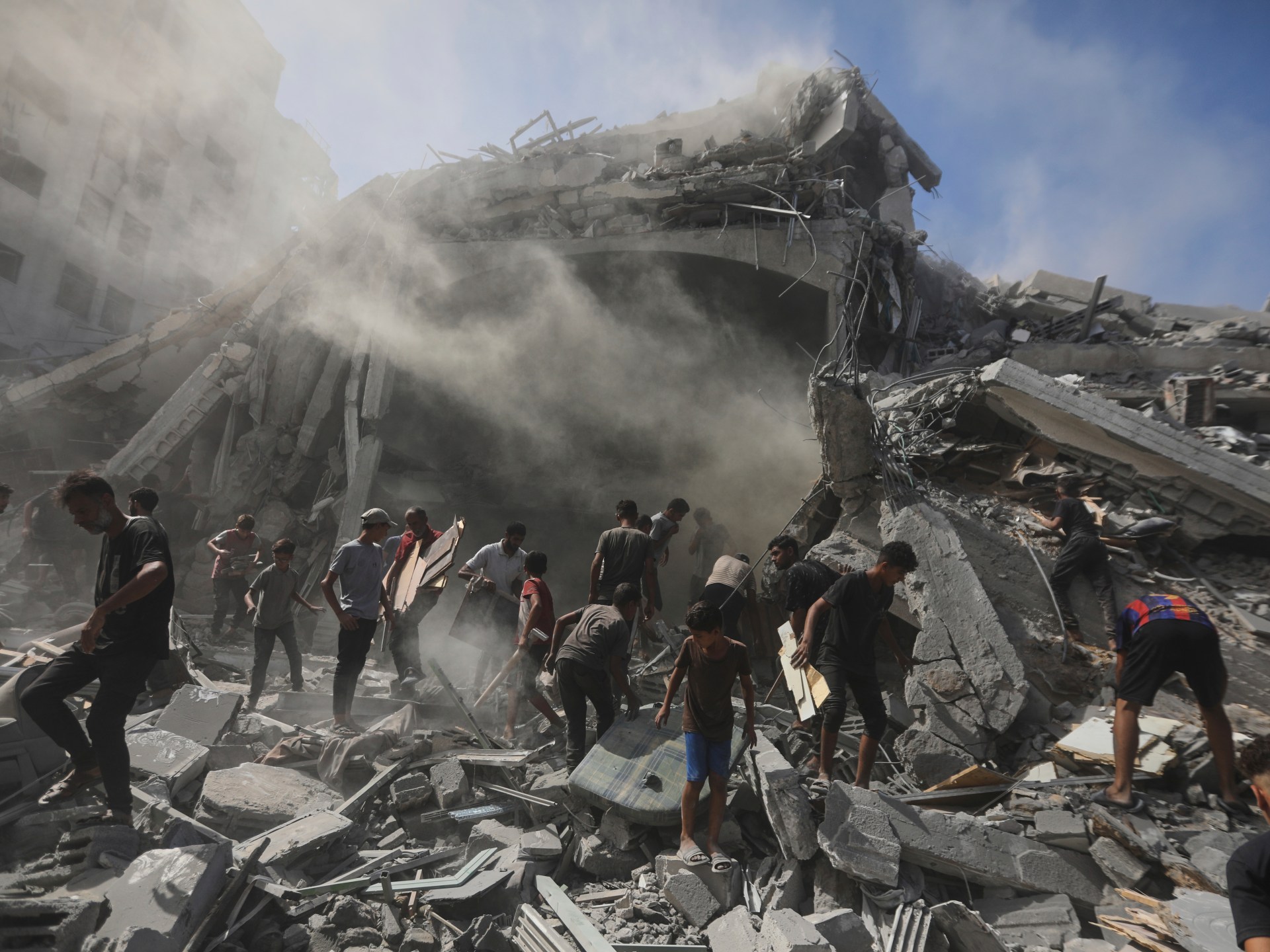
Amid mounting concern about the remorseless attacks by Israel against the civilian population in Gaza, which, since October 7, 2023, have reportedly led to the deaths and injuries of over 227,000 Palestinians and the displacement, in the last two weeks, of more than 400,000 people, 325 former European Union and Member State Ambassadors and Senior Officials are calling for urgent action.
We strongly urge the EU to immediately impose targeted sanctions on the Israeli government and suspend the EU-Israel Association Agreement. In addition, we urge the President of the United Nations General Assembly and the Chair of the United Nations Security Council to convene emergency meetings of both bodies to adopt sanctions against Israel for the multiple violations of international law being perpetrated daily against the people of Palestine. The United Nations, being the established global body for peace and security, must live up to its responsibilities.
We cannot stand idly by, watching Gaza reduced to rubble and its inhabitants driven into destitution and starvation. The issue is whether the EU and like-minded nations will stand up for basic humanity and for the values that underpin the post-war international order. Action needs to be taken urgently to preserve life, end the military onslaught in Gaza, secure the return of all hostages, and move to governance arrangements that allow for a swift return of the Palestinian Authority to Gaza as a necessary step towards a unified and democratically elected Palestinian government.
We demand that EU leaders respond urgently to the fact that, in recent days, the actions of the Israeli army have escalated to another level, with the bombardment of Gaza City in pursuit of the openly declared Israeli government policy of clearing the population out of the city and forcing the displacement of a million and a half people within or even outside the territory.
In addition, an engineered, man-made famine is unfolding in Gaza, already affecting 500,000 people. Severe malnutrition is rife, and more than 130 children have starved to death, despite the International Court of Justice’s provisional findings in February 2024 in the case brought against Israel, which required all States to take action to ensure that adequate humanitarian supplies reach Gaza. Finally, Israel has blatantly ignored the United Nations General Assembly Resolution of September 18, 2024 calling for an end to its illegal occupation of Gaza and the West Bank, instead doubling down by annexing additional swathes of Palestinian territory.
While noting the European Commission’s newly announced proposals for limited measures against Israel, our conviction is that the EU’s institutions and its Member States must act far more decisively to uphold international law and protect human rights, notably by suspending the EU-Israel Association Agreement, ceasing the export and import of arms and military equipment, banning imports from Israel’s illegal settlements, restricting access to EU co-financed programmes, and urging Israel’s other key trade partners, including in the Global South, to follow suit. They must also impose immediate targeted sanctions on Israel’s political and military leadership and all those complicit in and responsible for war crimes, ensuring accountability.
In addition, we urge the 13 EU Member States that have not yet done so to join both the 147 UN Member States who have already recognised the State of Palestine, and those who have announced they will do so at the ongoing United Nations General Assembly meeting, including France, Belgium, Malta, the United Kingdom, Canada, and Australia. Furthermore, the EU must demonstrate political and diplomatic leadership within all UN bodies and in partnerships with the Global South, Arab States and regional powers, to pressure Israel into compliance with its international obligations.
It must also support and strengthen the Global Alliance for the Implementation of the Two-State Solution, the key platform for a sustainable political solution allowing Palestinians and Israelis to coexist in peace and security, and demand that the US rescind decisions preventing official representatives of Palestine and the UN from engaging in dialogue at the United Nations General Assembly.
The heinous attacks of 7 October 2023 by Hamas and others against Israeli citizens, along with the continuing detention of hostages, can never justify the retribution wreaked on Gaza, which is becoming the graveyard of international law and universal human rights. Reckless military assaults of the type committed by Israel on the sovereign territory of Qatar, a key player in ceasefire talks, together with the lack of effective action, will condemn generations of both Palestinians and Israelis to perpetual suffering and continue to destabilise the region and beyond. It is incumbent on all of us, as global citizens, to demand from our leaders nothing less than the full application of international law. The time to act is now.
The full list of signatories of this letter can be viewed here.